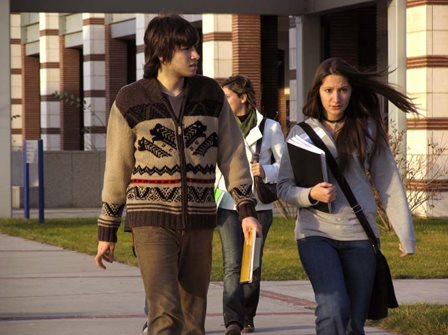Following on from our article in the March 2018 issue of National Haemophilia, one of our youth members, Alan, who has severe haemophilia, spoke to us about his tips and tricks for surviving university.
Preparation can be the key for making the transition to university easier. Knowing what services and supports are available to you may increase your chances of success in TAFE or university.

In the week before the start of his course, Alan spoke with the university’s disability team to discuss his condition and whether there was anything that could be done to assist him.
Young people with haemophilia don’t usually think of themselves as having a disability, but at universities and TAFE colleges they are actually entitled to support under the disability program. It’s a good idea to meet the disability team when you first start at uni or TAFE. That way you can get to know each other and learn how they can help you if you need it. Often it may be for temporary issues, like managing assessments and exams while recovering from a bleed.
A disability officer at one Victorian university told HFA, ‘universities generally want to do what they can to help people do the best that they can, that’s why they have disability teams. It’s a confidential service and they’ll talk with you about your needs and what they might be able to put in place to give you the best chance at success’.
The types of things disability teams have helped young people with haemophilia with in the past include:
For Alan, having this talk lead to access to a room where he could treat himself privately during the semester, and a private room for treatment during exams.
Alan found that most of the people he spoke to about his bleeding disorder were supportive about it. It did help that he was studying pre-medicine, as he found the class was soon learning about haematology and he was able to relate his own experience to his course. ‘All my friends were welcoming of the condition and it benefited everyone’.

Meeting new people could make anyone nervous, and it might help to remember that most people are in the same boat. Alan said ‘While we all were sitting on our lab benches everyone was quite friendly and I made a number of friends in the first day. As the weeks went on it was much easier to speak to everyone and as everyone has similar ambitions we all gelled well.’
You might remember from the last edition of National Haemophilia that Emily had similar feelings about meeting her classmates. Emily offered some advice for people who are just starting out: ‘go to all the lectures (even if they aren’t compulsory) because it’s a great way to meet your course mates’. She also suggested it’s a good idea to get to know your lecturers, something that can be useful for assignment extensions as well as job and further study applications. Sometimes you don’t gell straight away, and when you are doing a general type course with more subject choice it takes a bit more time to find your tribe, but if you keep talking to people you will find some who are easy to get on with.
When asked what advice he’d give to someone with a bleeding disorder starting out at uni or TAFE, Alan said; ‘I would just say not to be so nervous and to speak to as many people as possible to be able to connect and network.’ He found it all a little easier remembering that everyone else was probably feeling just as nervous as him. ‘The first day was daunting but I was a little excited as anyone would be. Everyone was scavenging to find their class alongside PHD students and other not so new students.'
Haemophilia Foundation Australia acknowledges the Traditional Owners and Custodians of Country throughout Australia, the land, waters and community where we walk, live, meet and work. We pay our respects to Elders past and present and extend that respect to all Aboriginal and Torres Strait Islander peoples.
Sign up for the latest news, events and our free National Haemophilia magazine